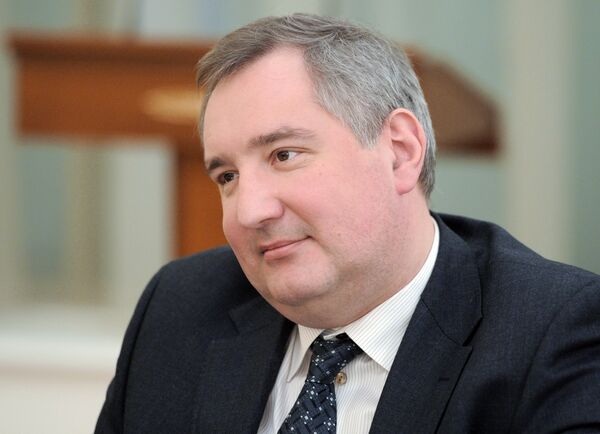The Russian government’s Military Industrial Commission may consider creating private military companies in Russia, Deputy Prime Minister Dmitry Rogozin said Wednesday.
Russia’s significant economic interests abroad often operate in “difficult” conditions, and such companies would facilitate their work, said Rogozin, who oversees Russia's military-industrial complex.
“We are thinking about whether our money should go toward financing foreign private security [and] military companies, or whether we should consider the feasibility of such companies in Russia itself,” he said.
President Vladimir Putin also declared his support in April for the creation of such companies, currently employed by a slew of Western governments, to provide security for Russian facilities abroad as well as training foreign military units.
Some Russian military analysts, however, are skeptical about Rogozin’s idea. They think the plan could be just one of the charismatic politician’s off-the-cuff statements, such as his claim earlier this month that Russia should plan to build a lunar base to reinvigorate its flagging space program.
Military analyst Alexander Golts says private U.S. security companies, for example, are useful because they allow the U.S. government to dodge the hefty insurance payments in the case of a military-related death – a practice rendered largely pointless in Russia.
“Strictly from an economic perspective, it’s much easier to outsource many of these tasks to private companies who pay insurance for their workers,” he said. “In Russia, the state has practically no financial responsibility to the loss of military personnel.”
Others, however, say such private security companies might be in fact useful in Russia.
Ruslan Pukhov, an expert at the Center for Analysis of Strategy and Technology, said private security companies could come in handy to tame a range of fringe groups and individuals who engage “in a similar line of work” but through illicit means.
“It’s better to have them under control than for them to be running around engaging in various semi-legal activities,” Pukhov said. “There’s a slew of people ready to participate in this kind of work but who are not ready to join the army.”
He added, however, that Rogozin’s proposal was unlikely to win wide-ranging support in the government.
“Neither the president nor the prime minister will support this idea, and especially not the security apparatus, which wants to maintain its monopoly,” Pukhov said.
Hundreds of U.S., British and French private military companies (PMC) and private security companies (PSC) currently operate throughout the globe. Their activities include the protection of local facilities, training foreign military and police forces, as well as offering consulting services and supporting regular military troops.
PMCs and PSCs work on contracts with governments and defense ministries, as well as with large transnational corporations. Several dozen such companies currently operate in Iraq and Afghanistan alone.


